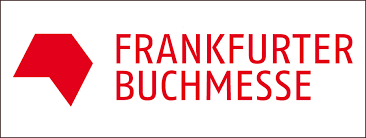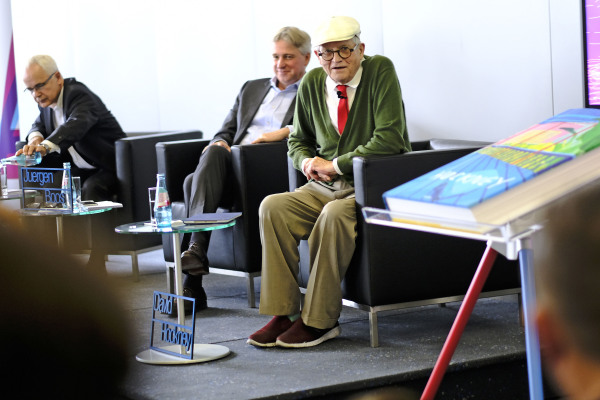Shelf Awareness
 "Now, more than ever, society needs strong and independent communicators of ideas, who are able to question and analyze the information and events," said Heinrich Riethmueller, president of the Börsenverein, the German book trade association, during the Frankfurt Book Fair's opening press conference yesterday morning. "Books underpin the spread of knowledge, stories and experience. Never have book people and cultural professionals been more important than they are today."
"Now, more than ever, society needs strong and independent communicators of ideas, who are able to question and analyze the information and events," said Heinrich Riethmueller, president of the Börsenverein, the German book trade association, during the Frankfurt Book Fair's opening press conference yesterday morning. "Books underpin the spread of knowledge, stories and experience. Never have book people and cultural professionals been more important than they are today."Juergen Boos, director of the Frankfurt Book Fair, said that "more intensively than ever before, we'll be addressing the question of how creative people--the originators of intellectual property--can live from their work. What business models are needed, what regulations and laws? And what networks exist to facilitate exchanges internationally?"
 | |
| Opening press conference with (l.-r.) Heinrich Riethmüller, Juergen Boos and David Hockney Photo: Alexander Heimann/Frankfurter Buchmesse | |
"I like to draw. I've always liked to draw," said Hockney. He described using the iPad to draw what he sees almost constantly, whether that be the sun rising while he's lying in bed in the morning or a set of plug adapters at a hotel in Germany. "The computer doesn't stop you drawing. You just carry on drawing on the computer now. The computer doesn't cancel out drawing, I've noticed."
Some of the biggest advantages to sketching digitally, he said, were the "enormous range of colors and marks you can make" and the fact that you can never wear out a surface. Artists, he said, "can go on drawing forever on this, of course." The biggest disadvantage to drawing digitally, he continued, was that there was "no resist drawing on glass."
Added Hockney: "Terrific medium for drawing, the iPad." --Alex Mutter
No comments:
Post a Comment